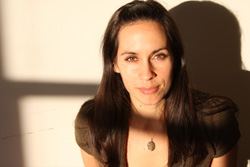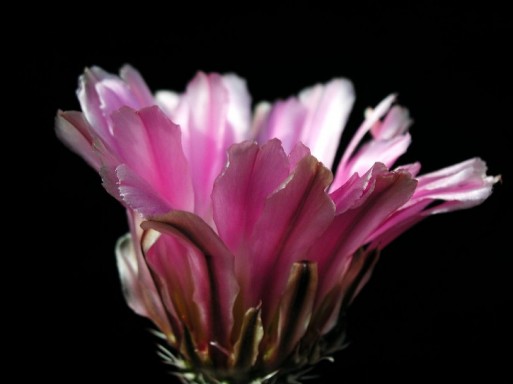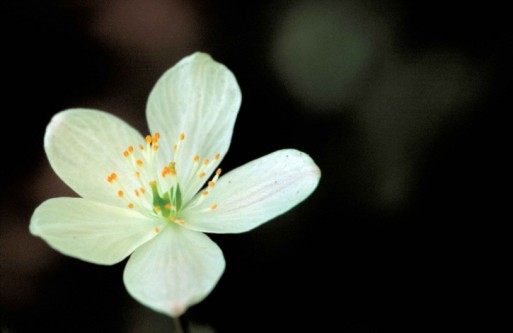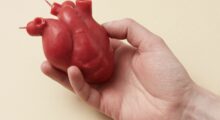Michelle Wallace has been teaching Pilates since 2004 and also offers Reiki and Qigong sessions. She holds a BA from UC Berkeley and an MFA in Creative Writing from Mills College.
 Kelly: First of all, could you tell us a little bit about what you do?
Kelly: First of all, could you tell us a little bit about what you do?
Michelle: I am a Reiki (pronounced “Ray-Key”) master, Qigong practitioner and Pilates instructor. On a very basic level, I help people heal, whether it’s with physical or energetic work. Reiki helps people get through tough times in their lives or help them transition out of their lives.
With my practices, I do focus on chronic and terminally ill people and also people with injuries. I’ve been teaching Pilates for nearly a decade, and four of those years I was working in a sports medicine clinic. I love teaching movement–movement itself is very healing. This is an aspect I love–seeing people coming in feeling stressed and then leaving an hour later feeling better.
I began to really understand the limits of pilates around the same time I started to get into energy work for myself and, as I went through the attunements to becoming a Reiki master, I began to understand how energetic blocks and physical pain are connected. I loved the idea of helping people heal on a deeper level and began offering Reiki and Qigong sessions to people. It is so important to receive energy work. It helps with healing on physical and emotional and spiritual levels and helps people to find balance, to find ease in life transitions, to grieve, to release pain and stress and reconnect with joy. I feel so blessed to be able to offer this work.
I give sessions which are purely Reiki and Qigong (Reiki is Japanese healing art and Qigong is Chinese healing practice. They are hugely complementary. I primarily use Reiki but use Qigong techniques where it’s appropriate), and I give sessions which are wholly Pilates, but depending on what a person needs, I will combine all these practices together. It’s really beneficial when, say, I’m working on strength-building with someone going through chemo and what they need more than anything is rest and balance so we can do a combo session. In the same vein, sometimes I’m working with a person energetically and I’ll spend a few minutes teaching them a few stretches to do before settling them on the Reiki table. I work as much as possible around what a person needs at the time of their session.
I’ll also work with people who are developing or trying to deepen their meditation practice. Reiki sessions help people get quiet and sit with the flow of energy, which is what meditation is about, but Reiki facilitates people getting there easily and quickly.
Kelly: I understand you have experience working with chronically ill people and cancer patients. What’s that like?
Michelle: I think it’s amazing. It’s really incredible to work with people dealing with chronic and terminal illnesses because in general they’ve gained a new perspective on their lives and are so ready for change. With energy work, the technicalities of a session aren’t much different than working with someone who is healthy.
On a physical level, when I train people who are ill, I am really attentive to where a person is day-to-day, so that I give them an appropriate session for them. With some illness, asking too much physically of a persona can really cause a setback in their overall health, so I move slower and really take the time to get to know the person and how they deal with the treatments and illness. It’s so exhausting and debilitating. Energy levels and pain levels can be so volatile. I just listen really carefully and try to work more with root causes than just going to the point that’s in pain. With Reiki and Qigong sessions I definitely bring the personal a little more into the session, either by giving them imagery to work with when it’s appropriate, or something else. When I’m working with someone with major health concerns, I feel really blessed to also be able to provide energy work. Especially people who are sick, they just need the rest.
I learn so much from the people I work with everyday, and it’s helped me to deal with the grief of my own illness. Reiki and Qigong allows people the deep rest they really need. It allows them a little more perspective and gives them more compassion for themselves. I always leave space for people to set the intention of their sessions and will guide them in that. I do try and help them work through it with ease as much as I can, and I do send people home with meditative homework, like things they can do at home, so they have something they can take away. When you’re so sick, life becomes chaotic and it becomes difficult to get things done. If you can sit and relax and let your stresses go, I think that helps them go through that.
Kelly: Do you have any particularly inspiring stories to share?
 Michelle: I had been sick with Lyme disease for 11 years until I got diagnosed. I moved home with my parents to die but ended up with a diagnosis and in really invasive, really hard treatment from Western medicine for about 3 years straight. In going through that and giving up so much independence, I had lost any excitement for life and I just felt worn out. I couldn’t work more than 12 hours a week. I didn’t have a social life because I was so tired and sick all the time. I got into Reiki and I started getting restorative sleep, which is huge. When you start getting that, that’s when your body starts healing. It took over two years to arrive at a place of balance, but my symptoms started going away right away and slowly lessened over time. I started having more and more joy in life and getting more excited about things, and remembering this vibrancy that was within me. I was allowing simple things to shine in my life. That was the biggest thing that could ever happen. I thought, “I haven’t been able to do very much, but I can do something about it.” That for me was what really made me want to share this with other people.
Michelle: I had been sick with Lyme disease for 11 years until I got diagnosed. I moved home with my parents to die but ended up with a diagnosis and in really invasive, really hard treatment from Western medicine for about 3 years straight. In going through that and giving up so much independence, I had lost any excitement for life and I just felt worn out. I couldn’t work more than 12 hours a week. I didn’t have a social life because I was so tired and sick all the time. I got into Reiki and I started getting restorative sleep, which is huge. When you start getting that, that’s when your body starts healing. It took over two years to arrive at a place of balance, but my symptoms started going away right away and slowly lessened over time. I started having more and more joy in life and getting more excited about things, and remembering this vibrancy that was within me. I was allowing simple things to shine in my life. That was the biggest thing that could ever happen. I thought, “I haven’t been able to do very much, but I can do something about it.” That for me was what really made me want to share this with other people.
Also, my grandfather recently passed away and we were really close. He had Alzheimer’s, and it was really hard to see him go through it. I just got indescribably sad. He had Alzheimer’s the last decade of his life. The last five years he began to disappear from us and the least three were really difficult for us. Those last three were when I learned about Reiki and Qi, and I would put my hands on his shoulder or knee; people with Alzheimer’s tend to get anxious, and so being able to sit with him and give him Reiki, he would calm down and it would be an easier visit. He was easier when I left. My grandmother told me this. It’s hard when your loved ones don’t die easily, and having my grandma tell me he was always more at peace when I left, and that the nurses saw that, it made me feel like, “Oh, I have something that I can do.”
Kelly: How does Reiki help with both emotional and physical healing?
Michelle: It’s difficult to describe how Reiki works because we don’t really have the vocabulary for it in Western society, although there are schools of thought around the world who have a vocabulary for energy work. All understand the body as energy, whether it’s physical or emotional, mental or spiritual. I know for me when I first got into it, I was constantly trying to wrap my head around it. I was always asking, “But what do you mean by ‘energy’?” because I understood energy as electricity that’s in wires, that lights our lamps, I just couldn’t understand it as what we all are. Then I realized I needed understand it experientially. On a very basic level, Reiki and Qigong both help move energetic blocks out and infuse positive energy. They’re incredibly healing processes, and it’s going to help heal regrets, help heal pain, help ease transition out of this life and into the next. In Western culture we started talking about mind/body/spirit stuff, but were looking at intersections of where the three work together. If you look at acupuncture or tai chi, or yoga, it’s energy work that works on all levels of ourselves. If something happens, like a bad experience with coworker or something, during a session I’ll be really relaxed and I’ll be able to experience the issue without any judgment. I’ll be able to accept it with compassion. Usually there’s a 12-hour period where the issue is still hanging on me, but the issue passes or clears and I feel a lot lighter. With the people I work with, it’s easier between us; the negative energy moves out. You can actually feel it working on you. I use Reiki all the time myself, and I’m a runner and at one point I pushed myself harder than usual. Afterwards, I had a session and I could feel it working within my muscles. It’s sort of like this buzzing energy. It’s normally very gentle, but that time, it was almost painful it was so intense in my muscles. I felt really great the next day, though. It’s not a replacement for going to the doctor, but it does work on a physical level.
 I can’t exactly tell you how, but everything is energy and there’s all this energy out there for everybody to use. Unless you have a daily practice, it’s difficult to be able to access that energy without someone assisting you. Meditation is hard; your mind won’t shut up, or your body gets tired or you think of all the things you could be doing or need to be doing. It’s not easy to establish a daily practice, but with a Reiki session with a practitioner, there’s somebody there to talk you into a meditative state. You’re ready to receive. I do believe all of us have the power to heal ourselves. As a Reiki practitioner, I facilitate that for people to find that within themselves.
I can’t exactly tell you how, but everything is energy and there’s all this energy out there for everybody to use. Unless you have a daily practice, it’s difficult to be able to access that energy without someone assisting you. Meditation is hard; your mind won’t shut up, or your body gets tired or you think of all the things you could be doing or need to be doing. It’s not easy to establish a daily practice, but with a Reiki session with a practitioner, there’s somebody there to talk you into a meditative state. You’re ready to receive. I do believe all of us have the power to heal ourselves. As a Reiki practitioner, I facilitate that for people to find that within themselves.
Kelly: Could you tell us a little bit about your own personal experience with Reiki?
Michelle: There’s so much to talk about. The first year I got into Reiki, every other conversation I had, I would talk about it. For me it was profoundly transformative. My whole life has changed. There was one point, where I had been going and having weekly Reiki sessions for three months, and my intent was to start meditating daily. And at the time, the last thing I had on my mind was to become a Reiki practitioner, and then I found out you can work on yourself. I thought if I could give myself Reiki every day, I could get better. I had my first class, and I was just incredibly blissed out for weeks. I was resting so deeply and engaging more with the world. About a few weeks later, my dad looked at me, then looked at me from a different angle; he said, “I don’t know what you’re doing, but you look brighter.” He was open to learning about reiki and after hanging out that day, he said that he didn’t really know “what this reiki business is, but it’s working.”
It just gave me had so much more light in my life. Getting into Reiki and going through the certification practice, you have to do so much clearing on your own. You end up moving so much old gunk out of the way. For example, when I was sick, I established all these habits that I needed because I was sick. I wouldn’t leave the house for more than 2 hours because I knew I didn’t have the energy; I would never go anywhere where I didn’t have healthy food immediately accessible. I was so hungry all the time. My whole body would collapse if I didn’t have food when I needed it. And as I was getting better, I could stay out longer, eat different foods. Just going through it, Reiki started making me realize I can let go of these habits because I don’t need them anymore. I thought, “Oh, I’m going to go to grad school, I’m going to start my own business.” For me, it’s been amazing. Not every modality is going to fit every person and every situation, but there are so many different types of energy work out there, from acupuncture to tai chi, even exercise, it gets you moving. When your body moves, you’re getting your whole energy system moving. Reiki for me has been amazing, but everybody has to figure out what’s right for them. It’s so much more immediate than Western medicine, at least it was for me.
Kelly: Would you recommend Reiki, or any other kind of exercise, as a means of coping with grief? What suggestions do you have?
Michelle: Absolutely.
 I lost my grandfather three months ago, and I had never lost somebody this close to me, and I know that my daily energy practices helped me to accept and to take the time to heal.
I lost my grandfather three months ago, and I had never lost somebody this close to me, and I know that my daily energy practices helped me to accept and to take the time to heal.
I’ve worked with people who are working with grief, and I’ve found that people often don’t give themselves the time and space to grieve as deeply as they need to. Reiki allows us to experience our grief without the judgment and regrets that come with it. I think when somebody dies, it’s so easy to be like, “I regret doing this, not doing that…” with that person that we miss the chance to release the regrets and heal. We pass judgment on ourselves for not being the best person possible. I think that all we can do is be the best person in the moment we have. Reiki gives us the chance to experience grief with compassion for ourselves so that we have perspective on it. It helps us understand what we need to do to properly grieve. It helps heal those regrets and helps people let go of them. It does help smooth out transitions. I’ve felt that I’ve learned how to grieve as deeply as I need to. Reiki has helped me learn what I need to do for that. I’ve taken more time to find peace and appreciate things, and find the joy that I still have in the life that I have, to have a balance. Of course I’ll be sad when thinking about my grandpa, but my grandpa was amazing and he had an amazing life. I’ve realized that I’m still alive, I can still find joy; it doesn’t all have to be sad. I found that I needed to rest so much, that I was just terribly exhausted all the time. I didn’t expect that. I expected sad but not tired. I thought that I needed to be around people when what I needed was to be alone with my grief.
I know some people can’t eat, others eat a lot of food when they’re grieving. Reiki helps balance that. For people who are tired, it’s important to be able to rest. Sessions help really restore the body and are good for grief itself.
Kelly: Thanks so much, Michelle!
- Read her story of having lyme disease and going home to die.

 What is Reiki? An Interview with Michelle Wallace
What is Reiki? An Interview with Michelle Wallace


 Terminal Sedation at the End of Life
Terminal Sedation at the End of Life
 National Donate Life Month Reminds Us To Give
National Donate Life Month Reminds Us To Give
 How Dare You Die Now!
How Dare You Die Now!














